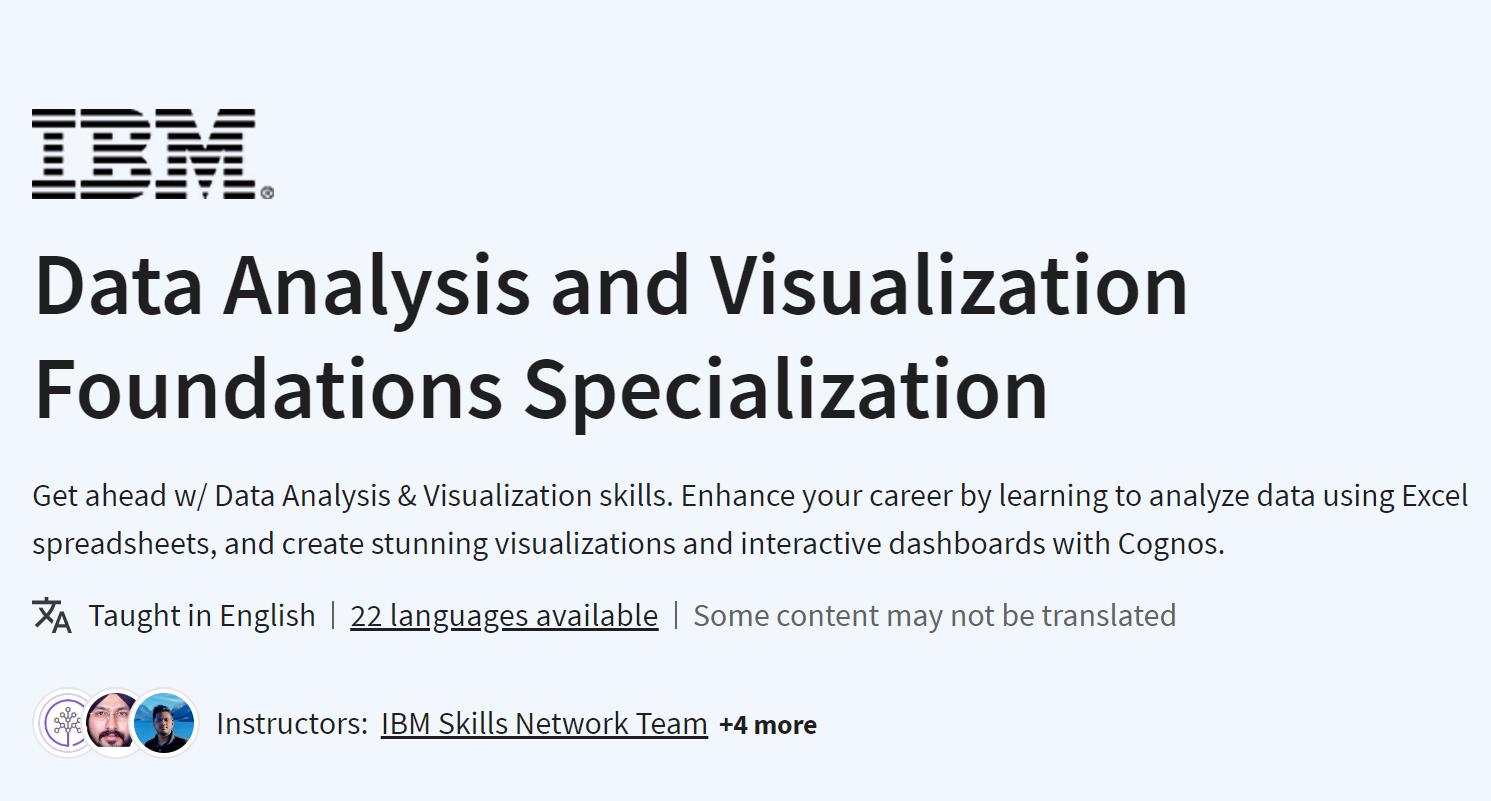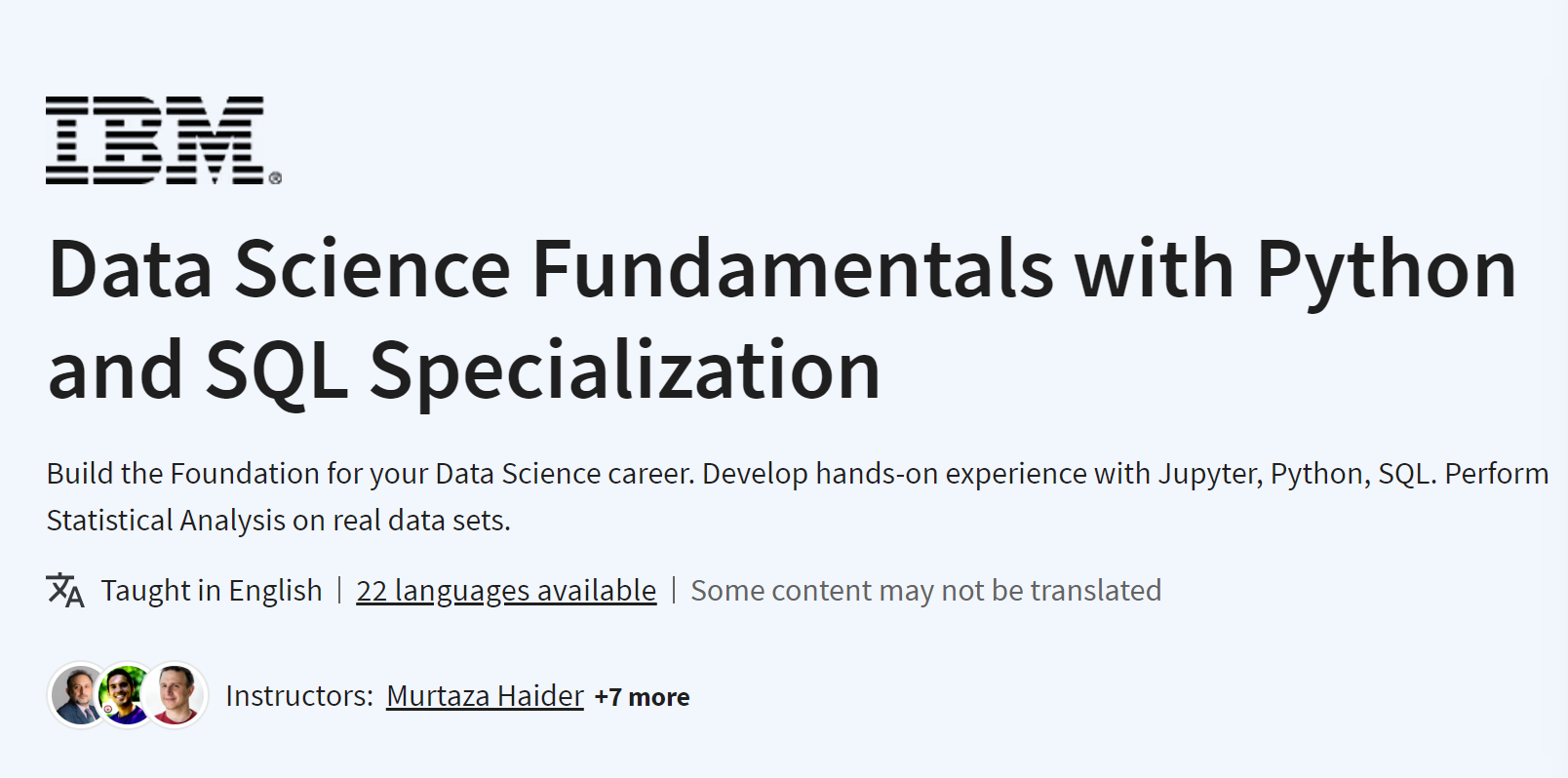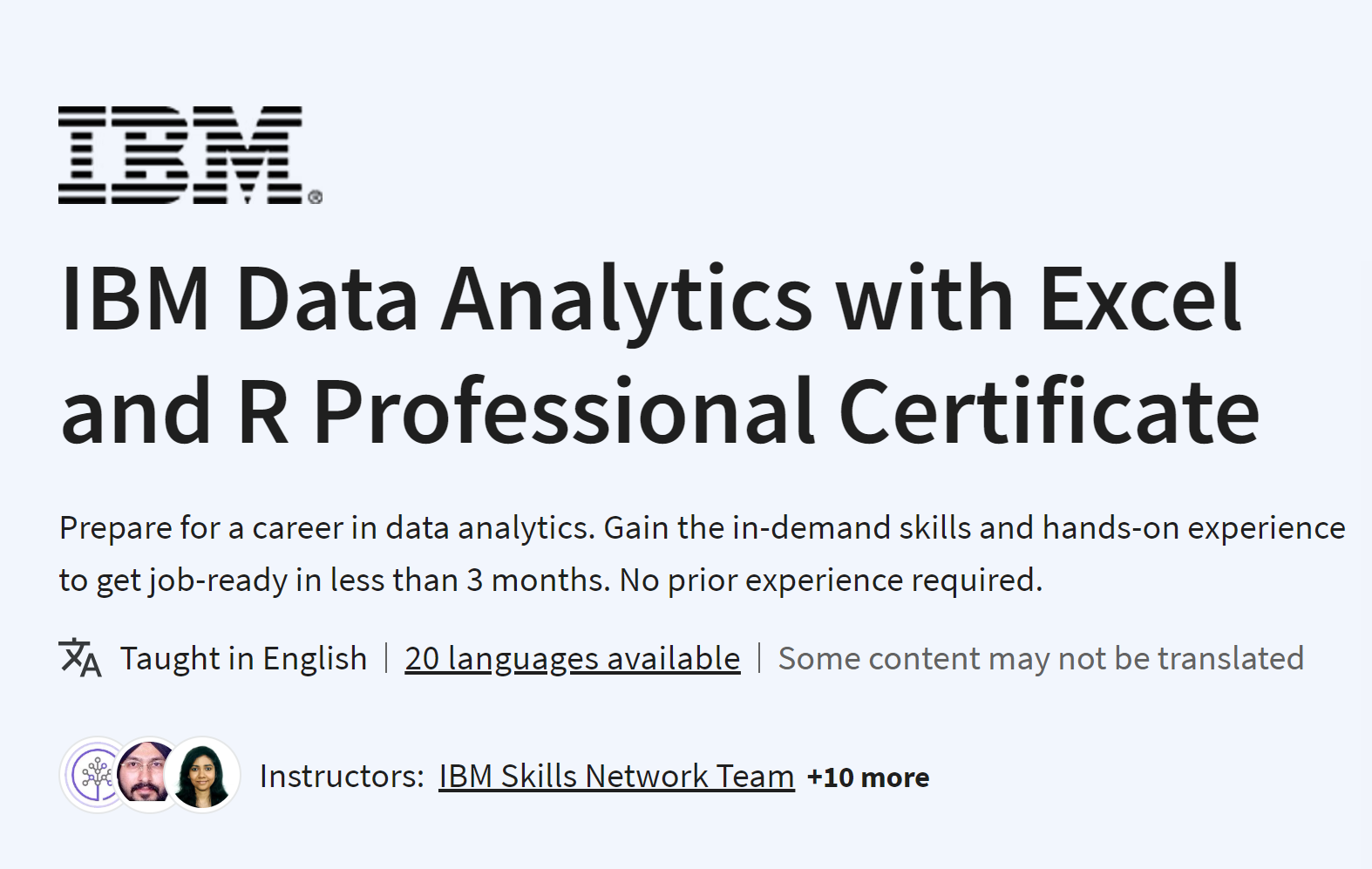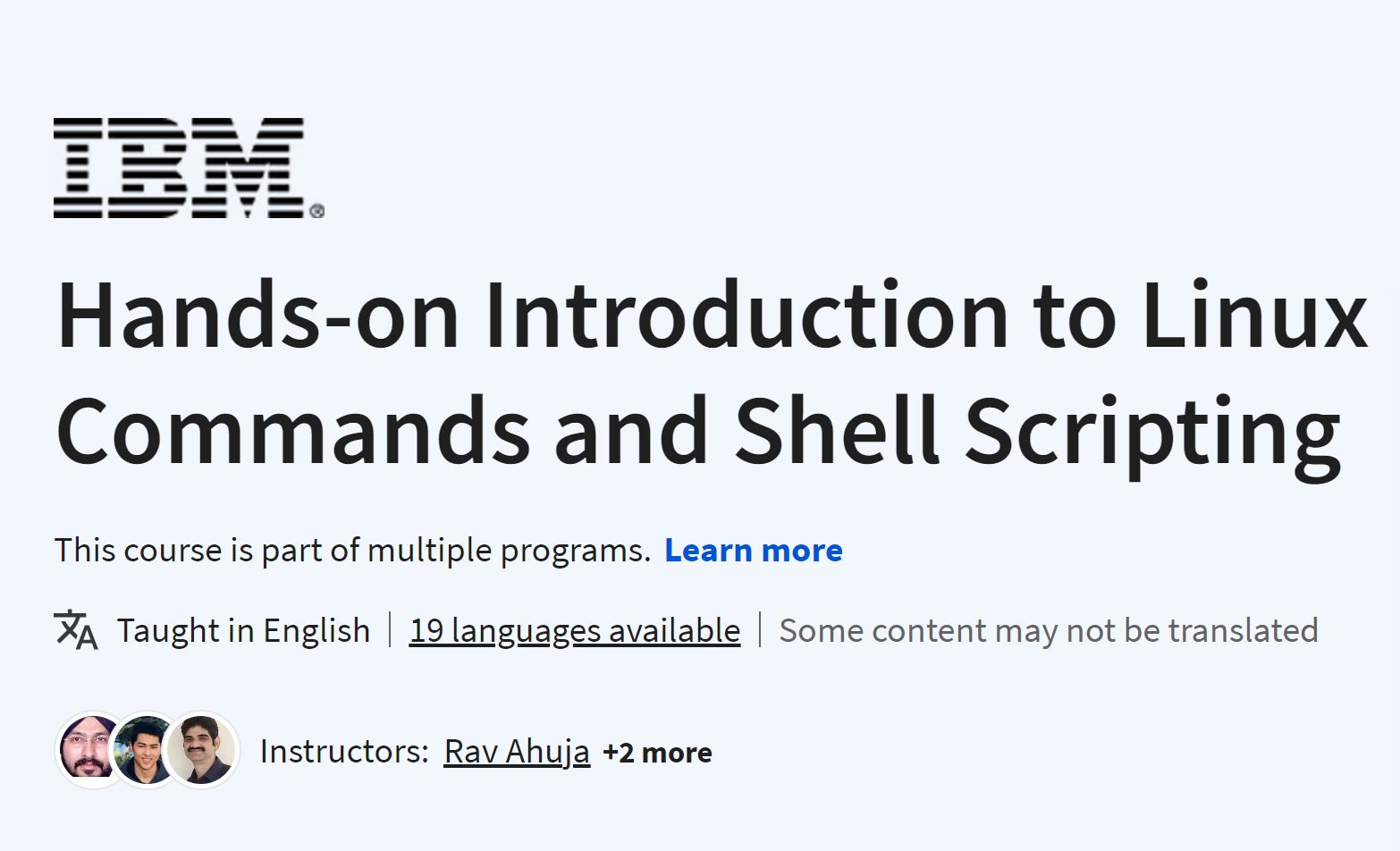
IBM Machine Learning Professional Certificate

Python Developer January 04, 2025 IBM, Machine Learning No comments

Python Developer January 04, 2025 Data Science, IBM No comments



Python Developer January 04, 2025 AI, Coursera, IBM No comments

Python Coding March 08, 2024 Coursera, Data Science, IBM No comments

Python Coding March 06, 2024 Coursera, Data Science, IBM No comments

Python Coding March 06, 2024 AI, Data Science, IBM No comments

Python Coding March 06, 2024 Data Science, IBM No comments

Python Coding March 06, 2024 Data Science, IBM, Python, SQL No comments

Python Coding March 02, 2024 Coursera, IBM, Python No comments

Python Coding February 26, 2024 Coursera, Data Science, Excel, IBM No comments

Python Coding February 26, 2024 AI, Coursera, Data Science, IBM No comments

Python Coding February 26, 2024 Coursera, Data Science, IBM No comments

Python Coding February 20, 2024 Cybersecurity, IBM No comments

Python Coding February 10, 2024 Coursera, IBM, Software No comments

Python Coding January 25, 2024 Data Science, IBM No comments

Python Coding January 04, 2024 Coursera, IBM, Machine Learning No comments

Python Coding January 02, 2024 Coursera, IBM, Scripting No comments

Free Books Python Programming for Beginnershttps://t.co/uzyTwE2B9O
— Python Coding (@clcoding) September 11, 2023
Top 10 Python Data Science book
— Python Coding (@clcoding) July 9, 2023
🧵:
Top 4 free Mathematics course for Data Science ! pic.twitter.com/s5qYPLm2lY
— Python Coding (@clcoding) April 26, 2024
Web Development using Python
— Python Coding (@clcoding) December 2, 2023
🧵: